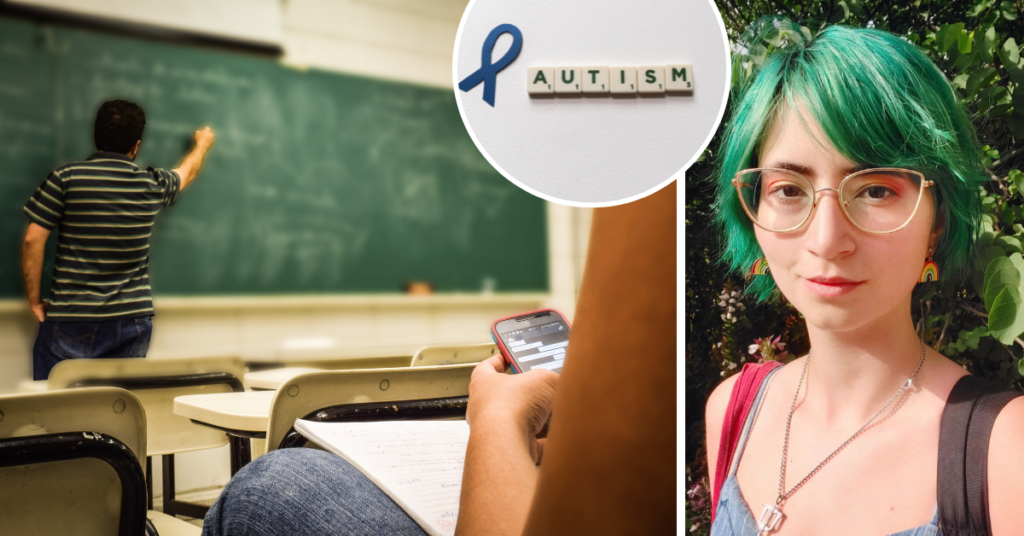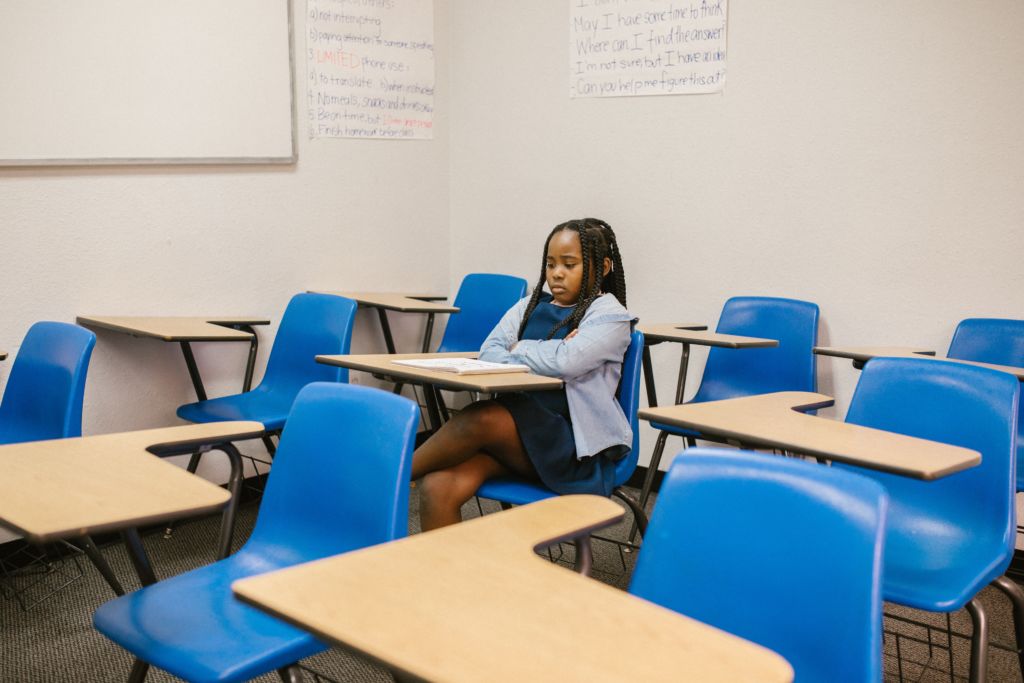‘I Grew Up Thinking I Was Broken’: Naomi Opens Up About Autism Inclusivity In Maltese Schools

Naomi is a 21-year-old university student who was diagnosed with autism at 19-years-old. They spent most of their school life feeling isolated and misunderstood, two things that were only exacerbated by an extreme lack of disability education and support.
“I grew up thinking I was broken in some way, that everyone had instructions on how to be a human and I was just born without them.”
Naomi spoke to Lovin Malta to not only open up about their experiences, but to provide some vital suggestions that our education system should consider in order to become a lot more inclusive for people with ASD (autism spectrum disorder).
Naomi is intelligent, verbal, and pretty. They were also assigned female at birth. This all means that their traits that were typical of persons with autism were brushed off as simply “problematic”.
Essentially, the antiquated “myths and stereotypes prevailed” and unfortunately betrayed Naomi, robbing them of the nurturing school experience that many neurotypical students are accustomed to.
In fact, the only time that their behaviour was flagged was during kindergarten, and for the reasons mentioned above, the concerns were overlooked and Naomi had to endure years of being branded as “dramatic and sensitive”.
And while they agreed that the lack of diagnosis made it difficult for school staff to support them, they explained that “a lot of teachers just aren’t aware of what autism really is and how diverse the spectrum is. Sometimes, I don’t think you would necessarily need a diagnosis to receive support.”
“I distinctly remember being shouted at by staff at my first school for not looking them in the eye. I’ve also had teachers make fun of my traits,” Naomi explained to exemplify the extent of the sheer lack of awareness.
When it came to accommodating teachers, there were only a “select few” that actually took the time to tell Naomi that they were free to leave the classroom whenever they felt uncomfortable or overstimulated.
Even as a student in the third year of psychology at the University of Malta, autism was only mentioned once in passing, Naomi said.
“The awareness really isn’t there and that would have prevented a lot of issues. It’s very common for autistic people to be bullied at school and I think if people were just aware and accepting of the differences it would make such a difference.”

Due to this lack of understanding, Naomi was pushed to ignore their needs and not give themselves the rest that their brain was wrestling for. Consequently, they began to learn how to mask, which essentially meant that they were suppressing their needs and identity to pass as neurotypical – an extremely exhausting process, according to Naomi.
Despite their efforts to appear neurotypical, Naomi “always felt like some sort of alien and never quite got why that was”.
Naomi also spoke about the calm room at the University of Malta, describing it as a place to “seek refuge and recover from the sensory experiences outside.”
“It’s a place where I can stim without judgement and it would’ve benefitted me a lot in secondary school when I’d use the bathrooms or the library to get away and relax.”
“I just wish that there were more places like this available, like in other schools and hospitals. However, while these places are great, they’re simply a bandage over a gun wound – there need to be some real structural changes.”
One change that they recommended is something called the universal design where everything is built with the intention for it to be accessible and understood by everyone.
Yet, there needs to be a much deeper type of reform, something that tackles the stigmatisation of disabilities from its roots
“The biggest structural change would be the way we approach diversity. Rather than expecting the disabled community to make the change, we should be valued for our differences. Society should accept us with and for our disabilities.”
“The sun will always be too bright no matter what I do, but that doesn’t make me any less of a human being.”
When asked about what changes they’d suggest to the education ministry to implement in Malta’s system, Naomi once again amplified the importance of awareness and acceptance.
“From there, everything else will follow. I really recommend that teachers have a module to train them about neurodiversity and autistic people during their teacher training. And of course, teaching children about autism because it’s not something that’s scary or bad, it’s just another form of diversity.”
“Another way the system can improve is by making the environment more accessible to autistic people. There were several structural things like the harsh fluorescent lights and the unbearably loud school bell that overstimulated me and made it harder to cope. I actually endured pretty bad migraines due to the light since they would appear as constantly flickering to me.”
“There was also a lot of complex layered noise and the visual stimuli of many people grouped together moving around, like during assembly.”
For these reasons, Naomi suggested dimmable or non fluorescent lighting, along with the accessibility of sensory aids like tinted glasses or noise cancelling headphones.
As they said before, education, awareness, and acceptance are key to making school and life in general more inclusive for people on the spectrum.
It’s time for our systems to normalise diversity rather than demonise it, only society stands to benefit.
Follow Naomi on Tik Tok to learn a little about what its like to live with autism on @lyrathedranix.
What do you think the education system needs to do to become more inclusive?
